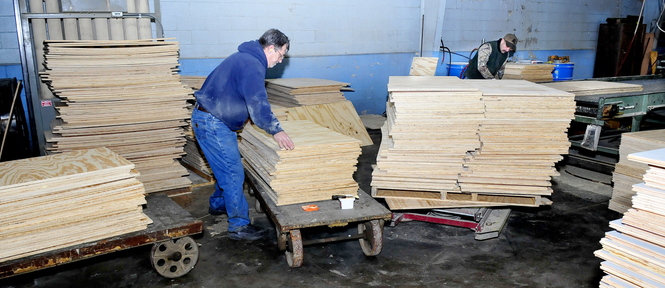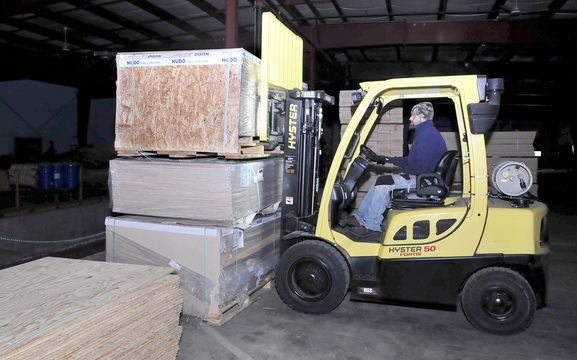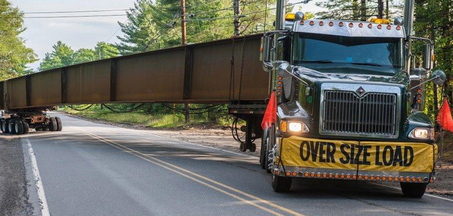MADISON — Freight transportation along a segment of a rail line has come to a halt after complaints about outbound service being disrupted by train derailments, while local businesses are saying the stop has been costly and forced them to search for alternative modes of transportation.
Officials at Pan Am Railways said Thursday that they no longer are providing service to a 26-mile stretch of track north of Oakland through Madison and on to North Anson. The state in recent years invested more than $500,000 to keep the tracks open.
Madison Paper Industries historically has shipped most of its products on Pan Am and been its largest customer north of Waterville. However, the Madison paper mill no longer is using the railroad after numerous derailments during the last several years that have caused delays in delivering paper products to customers, said Russ Drechsel, president of Madison Paper.
Cynthia Scarano, executive vice president for Pan Am Railways, in turn, said it doesn’t make financial sense for the railroad to continue to service the rest of the track north of Madison because without the business of the paper mill the Massachusetts-based company would not make enough money to cover the cost of maintaining that section of track,. Scarano would not comment on why the paper mill no longer uses rail service.
“We’ve been working very diligently with the other paper mills in Maine to try and increase what we’re bringing in and taking out,” Scarano said. “Madison basically made a decision that rail wasn’t going to be their primary form of transportation, and that’s their business decision. If we’re not going to make money, it’s not a good business decision for us either.”
The decision by the mill and the effect on the railroad — unforeseen by state and local officials — means that smaller business customers on the line no longer will be able to use the service out of North Anson and are being forced to explore alternative and more expensive shipping options.
Cousineau Wood Products and ARC Enterprises both said they were notified by Pan Am about a month ago that they would not be able to be serviced at the North Anson station, officials said.
“We need the railroad. There’s no way we could do what we do without them,” said Walter Kilbreth, president of ARC Enterprises, a manufacturer of steel bridge beams in Kingfield that employs about 30 people. Without service to the North Anson station, where the line ends, Kilbreth said the company is bringing shipments of large sheets of steel, some as large as 85 feet long by 10 feet wide, via truck from South Portland, a distance of 90 miles.
Brody Cousineau, vice president of Cousineau Wood Products in North Anson, said the change in service is a financial burden on his company, which now relies on the transportation of raw materials from a loading station in Auburn via truck. He estimated that costs about an additional $500 per load. Cousineau also employs about 30 people.
Madison Paper Industries, which is also one of the larger employers in the area, provides jobs for about 225 people.
“We’re still working on determining what the exact cost is. It’s fairly fresh and we haven’t figured out what the most economical alternative is for us,” Cousineau said. He said the company expects to lose money from land that it leased to ARC for loading and storage at the rail yard as well as increased cost in bringing raw materials of plywood from the south.
Cousineau said he doesn’t blame the paper mill or the railroad company for the change in service, and acknowledged that without the paper mill there is no chance that the two smaller companies could support the rail traffic. The scenario, however, is very different from what was expected when the town of Anson and the state invested in railroad repairs less than a decade ago.
In 2004, the town of Anson applied for and received a $563,000 grant from the state for repairs to the track between Madison and North Anson. Under the agreement, the town was to contribute an equal amount, bringing the total funds for the project to more than $1 million, said Nate Moulton, rail director for the Maine Department of Transportation.
Pan Am, known at the time as Guilford Rail System, agreed to provide the local funds for the railroad through an agreement with the town of Anson. According to the agreement, Pan Am was required to use and maintain the reconstructed part of the railroad for 10 years following project completion.
According to Scarano, the track is still in service, but shipping to North Anson would not be a good economical decision for either the railroad or the smaller companies. She said the railroad is working with Cousineau and ARC on finding other locations where they can load and unload products.
“We’re committed to rails and we’re committed to the state of Maine,” Scarano said. “Madison was the holding tenant, basically. They made the decision to not ship by rail anymore, and that makes the cost to those smaller companies more expensive. What we would have to charge them, because they’re the only ones on this 26-mile track, is, I would think, not feasible for them.”
She also said she hasn’t heard anything about the tracks being in poor condition. The 26-mile stretch is Class 1 track, which is the second-lowest classification in the Federal Railroad Administration’s system for determining the speed at which trains can operate. Freight trains cannot operate above 10 mph on Class 1 track.
Anson administrative assistant Robert Worthley said Thursday that the lack of service to North Anson was disappointing to the town.
At the peak of railroad usage about five years ago, Madison Paper was shipping about 170,000 tons of paper products, or roughly 2,000 rail cars per year, Drechsel said. ARC Enterprises was using 30 to 40 cars per year, according to Kilbreth. Cousineau said his operation used about 100.
Although the mill is not shipping via the railway, the company still considers that an option, Drechsel said. “The service that we’ve had has been very unreliable to get our product to our customers in a timely fashion,” Drechsel said. “The condition of the track in the Madison area is not good. I’m not a railway engineer, but when you see waviness like that on the track, it’s surprising.”
Rachel Ohm can be contacted at 612-2368, or at:
rohm@centralmaine
Send questions/comments to the editors.






Success. Please wait for the page to reload. If the page does not reload within 5 seconds, please refresh the page.
Enter your email and password to access comments.
Hi, to comment on stories you must . This profile is in addition to your subscription and website login.
Already have a commenting profile? .
Invalid username/password.
Please check your email to confirm and complete your registration.
Only subscribers are eligible to post comments. Please subscribe or login first for digital access. Here’s why.
Use the form below to reset your password. When you've submitted your account email, we will send an email with a reset code.